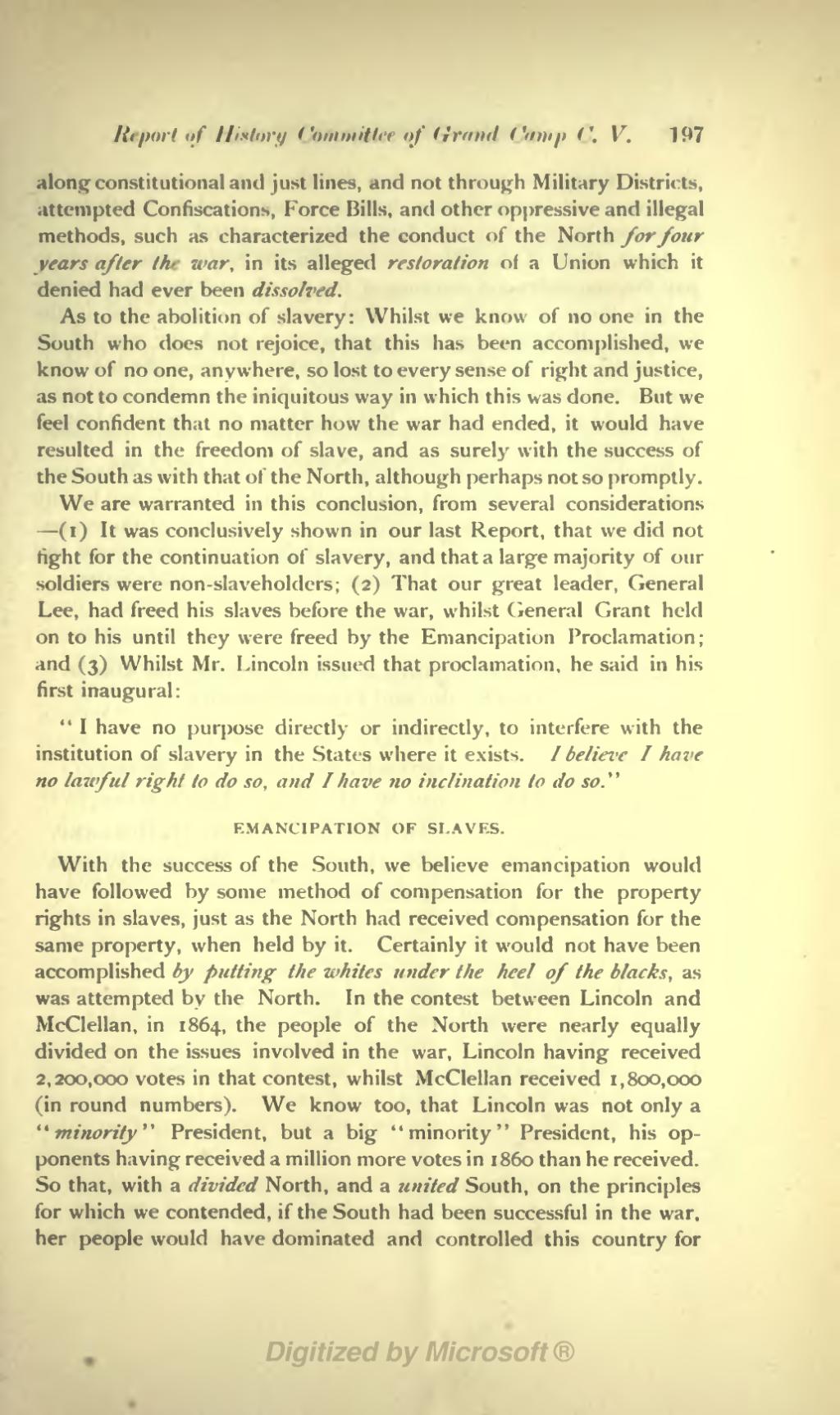/.'. fin, 'I ,,!' Hixlo,-,/ ( 'nnHintl,; ,>f' ( ,' f i till (Itn/i <'. V. H'T
long constitutional and just lines, and not through Military I)istri< t-, attempted ronlisrations, Force Hills, and other oppressive and illegal methods, such as characterized the conduct of the North for four years after f/if ri'ar, in its alleged restoration of a I'nion which it denied had ever been dissolved.
As to the abolition of slavery: Whilst we know of no one in the South who docs not rejoice, that this has been accomplished, we know of no one, an vwhere, so lost to every sense of right and justice, as not to condemn the iniquitous way in which this was done. But we feel confident that no matter how the war had ended, it would have resulted in the freedom of slave, and as surely with the success of the South as with that of the North, although perhaps not so promptly.
We are warranted in this conclusion, from several considerations (i) It was conclusively shown in our last Report, that we did not fight for the continuation of slavery, and that a large majority of our soldiers were non-slaveholders; (2) That our great leader, General Lee, had freed his slaves before the war, whilst General Grant held on to his until they were freed by the Emancipation Proclamation; and (3) Whilst Mr. Lincoln issued that proclamation, he said in his first inaugural:
" I have no purpose directly or indirectly, to interfere with the institution of slavery in the States where it exists. / beliei'e I have no lawful right to do so, and 7 have no inclination to do so."
EMANCIPATION OF SLAVES.
With the success of the South, we believe emancipation would have followed by some method of compensation for the property rights in slaves, just as the North had received compensation for the same property, when held by it. Certainly it would not have been accomplished by putting the whites under the heel of the blacks, as was attempted by the North. In the contest between Lincoln and McClellan, in 1864, the people of the North were nearly equally divided on the issues involved in the war, Lincoln having received 2,200,000 votes in that contest, whilst McClellan received 1,800,000 (in round numbers). We know too, that Lincoln was not only a " minority" President, but a big "minority" President, his op- ponents having received a million more votes in 1860 than he received. So that, with a divided North, and a united South, on the principles for which we contended, if the South had been successful in the war. her people would have dominated and controlled this country for
